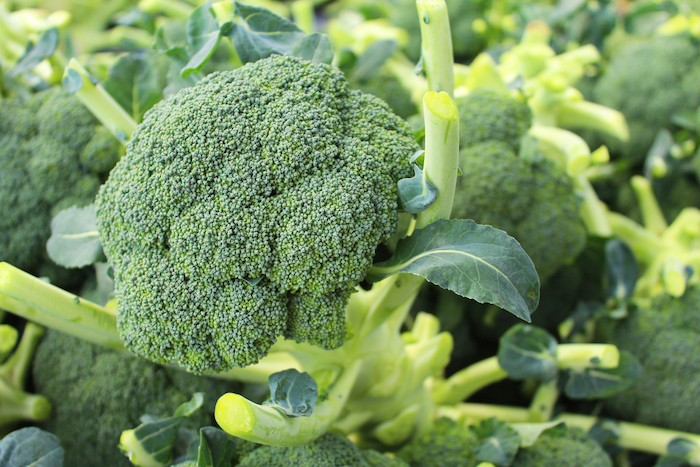Your mother was right; broccoli is really good for you. Long associated with decreased risk of cancer, broccoli and other cruciferous vegetables contain a unique molecule – Indole-3-Carbinol (I3C) – that inactivates a gene involved in a variety of common human cancers, offering a novel approach to cancer treatment and prevention.
In a new paper published in the journal Science, researchers have identified (I3C) as a natural and potent tumor inhibitor that effectively targets a gene – WWP1 – to suppress tumor growth in cancer-prone lab animals.
“We found a new important player that drives a pathway critical to the development of cancer, an enzyme that can be inhibited with a natural compound found in broccoli and other cruciferous vegetables (cauliflower, cabbage, collard greens, Brussels sprouts and kale),” said Pier Paolo Pandolfi, MD, PhD, Director of the Cancer Center and Cancer Research Institute at Beth Israel Deaconess Medical Center.
“This pathway emerges not only as a regulator for tumor growth control, but also as an Achilles’ heel we can target with therapeutic options.”
A well-known and potent tumor suppressive gene, PTEN, is one of the most frequently mutated, deleted, down-regulated or silenced tumor suppressor genes in human cancers. Certain inherited PTEN mutations can cause syndromes characterized by cancer susceptibility and developmental defects.
But because complete loss of the gene triggers an irreversible and potent failsafe mechanism that halts proliferation of cancer cells, both copies of the gene (humans have two copies of each gene; one from each parent) are rarely affected.
Instead, tumor cells exhibit lower levels of PTEN, raising the question whether restoring PTEN activity to normal levels in the cancer setting can unleash the gene’s tumor suppressive activity.
To find out, Pandolfi and colleagues identified the molecules and compounds regulating PTEN function and activation. Carrying out a series of experiments in cancer-prone mice and human cells, the team revealed that a gene called WWP1 – which is also known to play a role in the development of cancer – produces an enzyme that inhibits PTEN’s tumor suppressive activity.
How to disable this PTEN kryptonite? By analyzing the enzyme’s physical shape, the research team’s chemists recognized that a small molecule – indole-3-carbinol (I3C), an ingredient in broccoli and its relatives – could be the key to quelling the cancer-causing effects of WWP1.
When Pandolfi and colleagues tested this idea by administering I3C to cancer prone lab animals, the scientists found that the naturally occurring ingredient in broccoli inactivated WWP1, releasing the brakes on the PTEN’s tumor suppressive power.
While first author Yu-Ru Lee, PhD notes you’d have to eat nearly 6 pounds of Brussels sprouts a day to reap their potential anti-cancer benefit, indole-3-carbinol (I3C) is widely available as inexpensive supplement. And in addition to blocking tumor growth, I3C has also been shown aid in blocking environmental estrogens.
Story Source: Yu-Ru Lee, Ming Chen, Jonathan D. Lee, Jinfang Zhang, et.al. Reactivation of PTEN tumor suppressor for cancer treatment through inhibition of a MYC-WWP1 inhibitory pathway. Science, 2019; 364 (6441): eaau0159 DOI: 10.1126/science.aau0159












